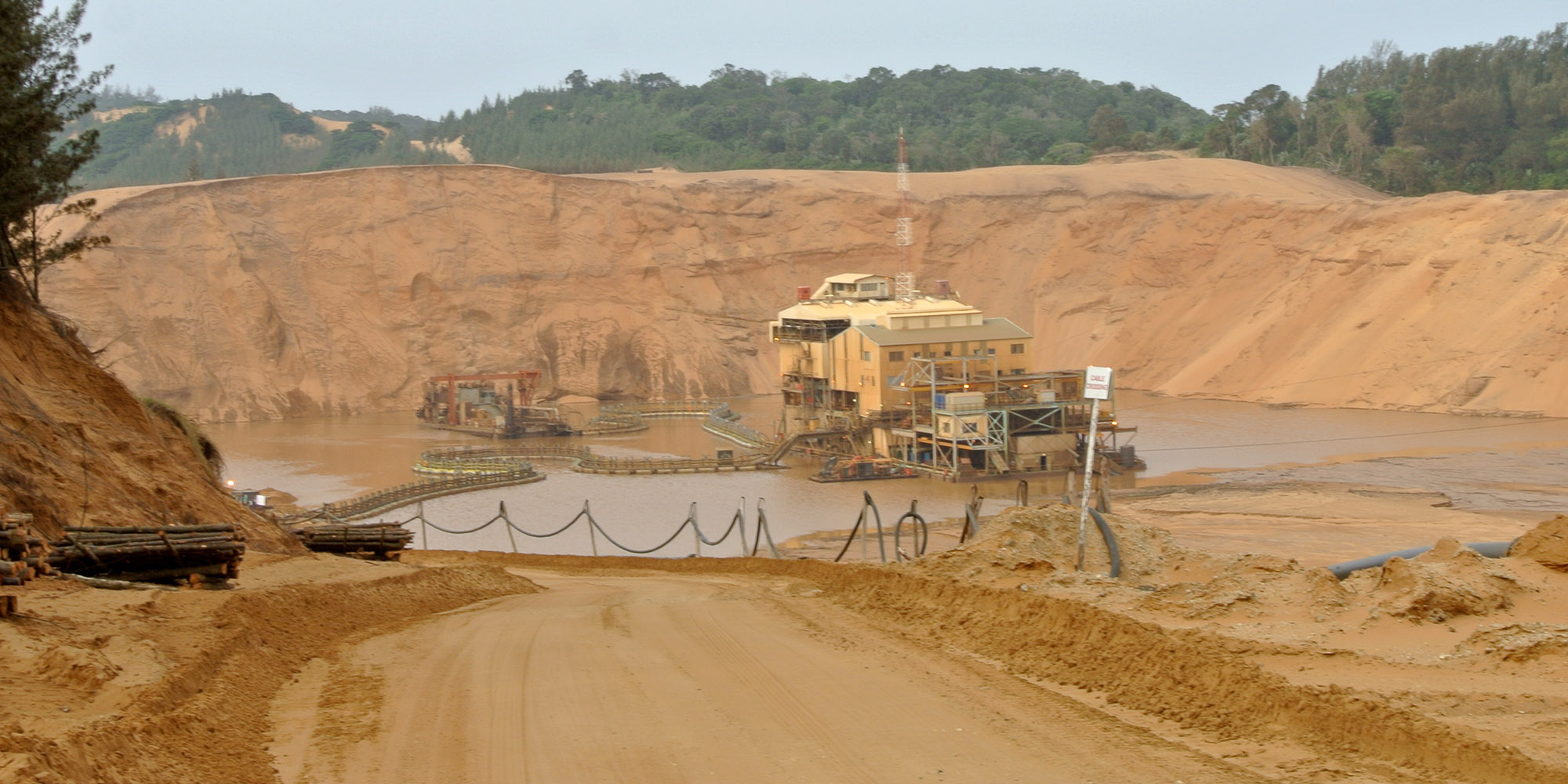Richards Bay Minerals (RBM) managing director Werner Duvenhage made the announcement as the company, a unit of global mining giant Rio Tinto, unveiled a 20-year renewable energy agreement to procure 140MW of wind power – a long-term commitment that shows it is in restive KwaZulu-Natal for the long haul.
The Zuthi South expansion project, originally priced at $463-million, was put on ice by Rio in 2020 as the security situation around RBM deteriorated, culminating in the murder of general manager Nico Swart in May 2021.
Read more in Daily Maverick: State failure: Rio declares force majeure at RBM in face of violence
Now the expansion project is back on track.
Duvenhage told journalists that RBM hoped to take the blueprint to the Rio board in the first half of next year, pending the outcome of a feasibility study and due diligence around that.
“Next year, we hope to get a decision and if it’s favourable, we hope to start with the project,” he said.
“In partnership with government, we have very much been able to get a stable environment... The current operations are running very smoothly. Unrest is almost unheard of.”
Duvenhage said it had been “very quiet” since the July 2021 riots, paving the way to revive the shelved expansion plans. This is likely to come at a higher price tag, depending on its scale.
RBM had effectively fallen prey to criminal gangs ranging from protection rackets to procurement mafias, while a fallout over funds linked to four community trusts also stirred a hornet’s nest in the region.
Read more in Daily Maverick: Loaded for Bear: The trouble with community trusts and the mining industry
The company has since reached an agreement to restructure one of the trusts and a court decision regarding the other three will be handed down soon.
Duvenhage said the election period had also been peaceful, but declined to comment on how he saw the outcome potentially affecting the security situation.
Disgraced former president Jacob Zuma’s upstart MK party has emerged as the biggest in KZN at the provincial level, and – aside from its thuggish posturing and air of menace – its policies are openly hostile to business and the private sector.
Read more in Daily Maverick: After the Bell: Will MK’s bizarre and catastrophic economic policies be a factor in SA’s coalition talks?
The stakes are high as RBM is the biggest contributor to KZN’s economy and, as a unit of Rio, it is firmly on the radar screen of foreign investors.
But the renewable project and decision to raise the expansion plans from the dead demonstrate a new level of confidence on RBM’s part – and taking risks is what businesses do with their capital.
The two-decade renewable Power Purchase Agreement is with Khangela Emoyeni Wind Farm (Pty) Ltd to secure 140MW of energy from a new wind farm to be erected in the Western and Northern Cape provinces.
A wheeling agreement with Eskom will deliver the energy across the country and the project is likely to reach commercial operation within 28 months.
Reduced carbon footprint
This is expected to reduce RBM’s annual carbon emissions by 20%, which is important as the titanium dioxide slag it mines – used in the production of a range of industrial items from paint to toothpaste – is exported to markets such as the EU, which are increasingly tightening the noose on imported products with a high carbon footprint.
“RBM exports to almost everywhere in the world, but our biggest markets are North America and Europe. So we are trying to differentiate ourselves as a carbon-neutral producer...
“It (decarbonisation) is an incentive for us if we want to retain our markets and we believe it’s important if we want to grow our markets as well,” Duvenhage said.
The saga underscores the costs that are inflicted on South Africa’s economy by unrest and unchecked criminality.
The expansion project – which is not set in stone – has been revived, but only after years of delays which have cost KZN billions in investment and tax revenue, not to mention unrealised job creation and opportunities for legitimate small businesses in the region.
South Africa’s economy has also lost potential export earnings as a result.
As the wind turbines go up in the Cape, the menacing winds of political change in KZN will hopefully not blow RBM’s tentative plans for expansion away again. DM





